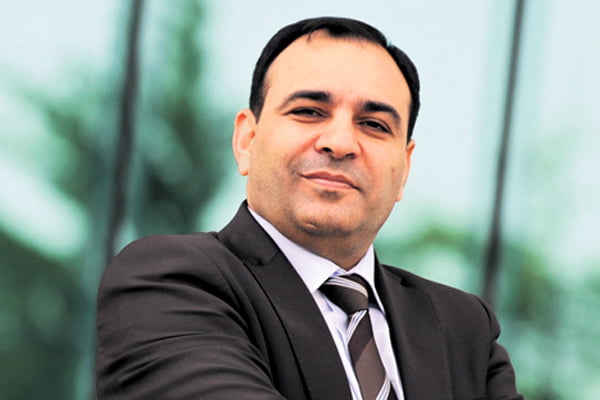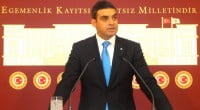It is shame not to reopen Halki Greek Orthodox Seminary

Date posted: October 12, 2013
BÜLENT KENEŞ
Sometimes you need many pages to properly express a feeling or idea. Sometimes a sentence is enough to depict that dominant feeling or idea.
There may even be times when you are overwhelmed by such an intense feeling that you feel you are lost for words. What pages, paragraphs and sentences fail to convey remains well-expressed by that feeling that sits inside your mind like a powerhouse or like a fist. Sometimes this feeling turns into jubilation or joy that is impossible to contain. At times, it is an unbearable pain, sorrow or rage that grabs you. At other times, what you witness makes you blush and settles inside your heart as a sense of shame you cannot sustain.
This is the very feeling I personally have in the face of the debates concerning the reopening of Halki [Greek Orthodox] Seminary on the island of Heybeliada near İstanbul, which was closed down in 1971 by the interim regime formed in the wake of a military memorandum in Turkey. “Shame” is the only word I can find to describe this feeling. As a matter of fact, in such cases, people should not try to find words to correctly describe such shameful situations. To use words to represent that intense feeling that squeezes your soul with a clamp is actually unnecessary. So please be warned I engaged in such an unnecessary occupation as I penned this article.
First, I must make a confession. If you use the most natural rights of your citizens whose religious beliefs or ethnicity diverges from the majority as a bargaining chip in the face of antidemocratic practices by another country against its own minorities, I personally don’t know of any way to reconcile this with the principles of pluralistic and liberal democracy or the rule of law. Frankly, I wonder how people can reconcile this with human or Islamic values in the first case. Really, when have we started abiding by the ethics of seeing our citizens as hostages whom we can use as trump cards against someone else? After which practice of our ancestors, whom we talk about with such pride and whom we frequently boast of being inheritors to, have we modeled this miserable bargaining strategy? To what extent have we acted as true inheritors of our ancestors?
Given the fact that we boast of being inheritors of our ancestors because they treated diverse faiths and cultures within the borders of their empires with much greater tolerance than is seen in our current civilization, which of our ancestors acted like this: the Ottomans or the Seljuks? Which of our ancestors would say the following sentences as though they were uttering a considerably normal thing: “The decision to reopen Halki Seminary hangs on an instant. Whenever we decide to return something, we also have a right to expect something. If the opening of Fethiye Mosque and the other mosque [in Greece] and the election of the chief mufti by our sisters and brothers in Western Thrace are simultaneously performed, then it will be enough for us to reopen the seminary.”
Someone please explain this to me. Greece may be denying the natural rights of the Turkish and Muslim minorities in the country and oppressing them in this respect but how does this vest us with the legitimacy to usurp the natural rights of our own citizens? When did we start using the rights and freedoms of our citizens as a card in bargaining with another country? What sort of bargaining is this? You may not care about principles but can’t you see that you will assume a morally superior position if you recognize the rights of your citizens? Can’t you calculate that this moral superiority will empower you in adopting a stentorian voice while criticizing the human rights violations, pressures and oppression in other countries?
Is the lack of a proper addressee, with whom to conduct such a bargaining, the real reason for your failure to properly return the rights of your citizens who are in the minority due to their diverging lifestyles, beliefs or ethnic origins? Perhaps, this, too, will be done. For instance, we may seek to bargain for the solution of the issue of the rights of our Alevi citizens with another neighboring country. The addressee with whom to bargain the most fundamental rights of our Kurdish citizens has already been found… Thus, we take or delay steps to recognize Kurdish rights depending on how the terrorist organization Kurdistan Workers’ Party (PKK) acts.
Really, is this the ultimate level we have attained in our never-ending struggle for democracy, human rights and freedoms? If this is really the case, then it seems we have combated the militarist/Kemalist state and deep state networks in vain. In the final analysis, the Kemalist state, too, would completely deny the most natural rights of our citizens who were categorized according to their ethnicities or would resort to the principle of “reciprocity” to use these rights as a bargaining chip as we currently do.
It is a shame. We all must understand that no state governed by the rule of law and democratic principles can bear to shut down the Halki Seminary in 1971, where education had started in 1844 in a church building that dates back to the ninth century. Just as the fact that the number of surviving Greeks in this country is just a few thousand is sufficiently disgraceful for our nation and state, it is a shame for this government and for us to see Halki Seminary closed for another day.
It is high time we discuss and question this archaic mentality which denies recognizing the ecumenical status of the patriarchate that has more than 300 million followers just as it rejects the Kurdish identity of our Kurdish citizens, the religious presence of our conservative citizens or the demands by our Alevis for official recognition of cemevis (Alevi house of worship).
The time has come to welcome the ecumenical patriarchate once again, recalling how our ancestors had confidently afforded them protection for centuries. In this context, it would be a major step to reopen Halki Seminary with no strings attached and as our Orthodox citizens and the ecumenical patriarchate wish. In addition, we should allow non-Turkish citizens to attend this seminary, as was the case in the past, taking into consideration the clergy needs of the 300-million global Orthodox community and not just the tiny Greek community in our country. This must be done so that we, the entire nation, can get rid that horrible shame we feel deep inside in the face of the primitive ban.
Source: Today's Zaman , October 10, 2013
Tags: Christian Muslim dialogue | Democracy | Freedoms | Turkey |
























